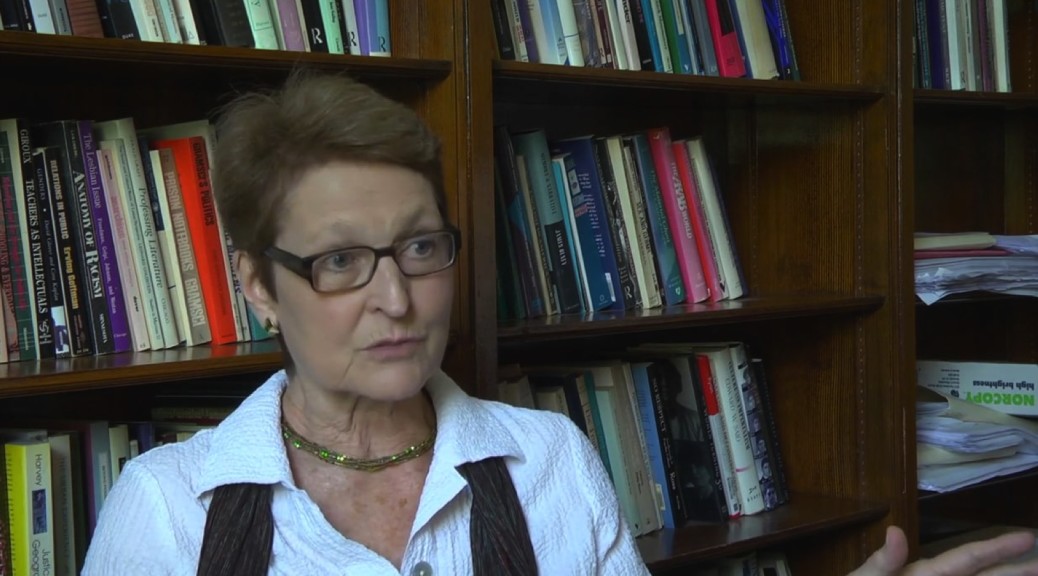JEAN HOWARD
George Delacorte Professor in the Humanities
IRWGS Director, 1997-99
While I was in the Huntington, writing away on my book, Martha [Howell] and Alice [Kessler-Harris] and Lila [Abu-Lughod] and a group of people at the institute, Susan Sturm in the Law School, decided to lobby Lee [Bollinger] to set up some kind of position in the provost’s office where somebody would be responsible for improving the statistics on women and minorities on this faculty. And he needed this position—they said, you’ve got to have somebody dedicated to it. If it’s everybody’s responsibility, nothing’s going to happen. They persuaded him, and because I had done the pipeline report, they thought I could do it. So when I came back, weirdly, I came right back into this newly-created position, which was the most terrifying event of my life because I had never run such a thing. What was it to be a vice provost?
I knew from the beginning—I was going to run this with the help of other faculty, because I would need their legitimacy very badly, and I’d be their labor power since we didn’t have any office. So I got this office with a conference room, thank God. Best resource I ever had was a conference room. It was called the Office for Diversity Initiatives.
I set up this committee of faculty advisors to help me decide what we would do. We immediately said, well, one thing we’re not going to do is do a diversity action plan, because that will take a year or two years, and I have a drawer full of diversity action plans from every other university, and they all look the same. The idea is not to have the plan, it’s to do something. So we dispensed with the two years of doing a diversity action plan, and we just started to do action. Do initiatives, do things. We knew the first thing we had to do was get target of opportunity money so that we could start hiring and make the faculty believe that there were actually going to be more women in the sciences and more diverse people in the disciplines. We hired, or helped to hire, twenty-three or twenty-four in the three-year period. It was a fabulous run of exquisite hiring, all done with the faculty completely involved and completely vetting everybody. Nobody was ever forced to take anybody, it was always choice. That was the big thing.
But this committee was so visionary, it also knew that we needed a work/life office. We didn’t have one at Columbia. You can’t hire women in the sciences if you don’t have any provision better than we did for childcare, and all kinds of things. So we set up a work/life office, we set up a HERC, which is a consortium with a lot of area schools so you put all your jobs online so that if you have somebody coming in who has a spouse and needs employment and you can’t do it at Columbia, you have this huge bank of jobs. We set all that up, got that running. We set up affinity groups so that Black faculty coming into this place would, in the first month, be greeted by Black faculty from all over the university, so that they would feel that they were people that they could turn to. We set up these dinners where we train search committees about how you do proactive diversity searches. It was so great because faculty led them and faculty presented the data and presented the research that we had done on implicit bias, and all kinds of things.
We read, as a committee, all this research to figure out what we thought was good research that would convince the rest of the faculty that what we were saying was true, so it was all either data-driven or research-driven. All of this we did in the three years.

